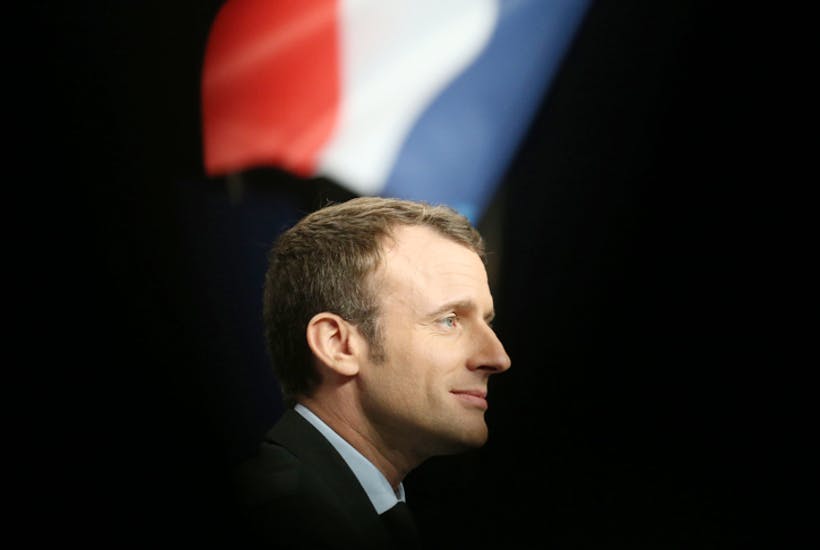The man who brought France’s Socialist Party to the brink of ruin has no sense of shame. In recent weeks, François Hollande has been plugging his memoirs all over the media and even hinting at a political comeback, much to the “exasperation” of his party, who wish the former president would go quietly into the night.
The book, The lessons of Power, is rumoured to have been written with the help of a well-known left-wing journalist, but the delusions are all Hollande’s. His bitterness towards Emmanuel Macron seeps through the prose, and for every swipe at his successor there is also a claim that France’s gradual economic upturn is down to his policies. He admits to one or two errors, notably his lack of “boldness” in not expanding the country’s medically assisted procreation [PMA] law to include lesbian couples and single mothers. Currently the law restricts the practice to heterosexual couples of childbearing age.
On the other hand, Hollande cites as one of his finest achievements the passing of the same sex marriage and adoption bill in 2013; his conservative critics demur. As the expert on French Islam, Gilles Kepel, has commented, the bill achieved the rare feat of allying Muslims “with the Catholics of the right and anti-gays by way of their shared values”.
Not only did more than a million people take to the street to voice their opposition to the bill but they also expressed their disapproval at the ballot box. In the second round of the 2012 election – a year before the same sex marriage bill came into law – 93 per cent of the Muslim electorate voted for Hollande over Nicolas Sarkozy. At the time, the director of one of France’s top polling organisations cautioned the new president against taking the Muslim vote for granted because they are very conservative on some issues, “for example, homosexuality, which they reject en bloc”.
Hollande ignored the warning and the party’s candidate in 2017, Benoit Hamon, who is also a progressive, paid the price: he received just 17 per cent of the Muslim vote in the first round. It was a similar story with the Catholic electorate, 24.5 per cent of whom voted for the Socialists in 2012, a figure that shrank to four per cent in the 2017 election.
During his presidential campaign, Macron said he was in favour of extending PMA to include lesbians and single mothers but, since taking office, he has exercised caution. Power brings with it responsibility and in the last year he has been wrestling with a profound moral dilemma: support the politically correct progressives or respect the religious beliefs of millions of his people, whose faith in recent years has been ignored, even belittled, by mainstream politicians of all stripes.
Herein lies the paradox at the heart of the secular, progressive West: they champion multiculturalism but are intolerant of the traditional family values and religious beliefs inherent in many of the cultures they welcome into their communities.
This, in turn, has created a moral disjunction that has been exploited by Islamic extremists, who pump out propaganda that contrasts the piety of their ideology with that of the permissive West. In the February 2015 issue of their now defunct magazine, Dabiq, Isis published an article entitled ‘Clamping Down on Sexual Deviance, which said:
“With the advent of the ‘sexual revolution’ five decades ago, the West was plunged into a downward spiral of sexual deviance and immorality. With it came a slew of sexually transmitted diseases – including the as yet incurable AIDS – as men and women let their lusts overwhelm their judgement”.
It’s surely no coincidence that as the West has become more progressive so Islam in Europe has moved in the opposite direction. Witness the growth of the Salafist community in France, for example, up from 5,000 in 2004 to 50,000 today; or the 2016 survey that revealed 50 per cent of Muslims aged under 25 would prefer a version of Sharia law to French law. Why? Because they see one as devout and the other as deviant.
Significantly, the Catholic church is enjoying something of a resurgence in France. Marion Maréchal is just one prominent example of a practising Catholic, but she is far from alone: this year has seen a 55 per cent increase in baptisms compared to a decade ago.
In a speech to France’s religious leaders last September, Macron said he was aware that medically assisted procreation is a very sensitive issue in the country, and he “does not want to see French society divided”. But how can he reconcile the quasi-religious zeal of progressives with the deep faith of Catholics and Muslims? He can’t, their morals are irreconcilable.
Since January an ethics committee has been studying the complexities of PMA and other bioethics issues (including assisted suicide), a project that has entailed 271 public debates across France. At the end of last month the committee dined at the Élysée Palace, in the presence of the president and religious leaders, and Macron “remained neutral” as he chaired a discussion on their findings, which included surveys indicating that nearly 90 per cent of the French public are against liberalising PMA legislation.
The committee’s 200-page report was published on Tuesday and PMA campaigners are furious that the issue has been shelved for the foreseeable future. “It’s appalling,” said Alice Coffin, a member of the European Conference of Lesbians, who accused Macron of breaking his promise. Noting that no lesbians had been invited to the dinner at the Élysée last month, Coffin said: “Why not organise a dinner of lesbians rather than consulting priests?”
Five years ago, Hollande listened to the lesbians and ignored the priests, rabbis and imams. Macron is adopting a more prudent approach and the man described last year by Marion Maréchal in an interview with a Christian organisation, as a “civilizational danger”, is refusing to ride roughshod over religious faith in the name of progressive fervour.







Comments